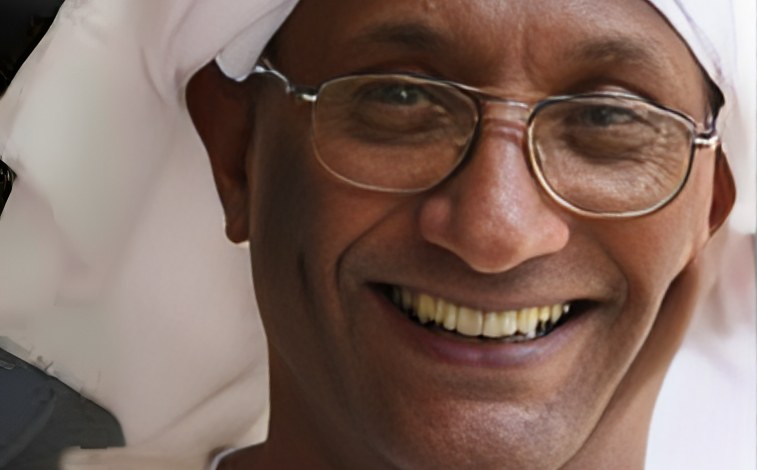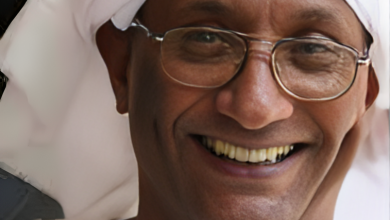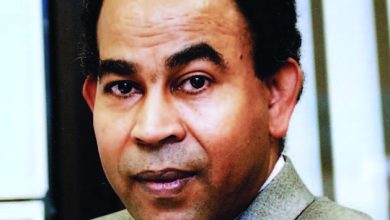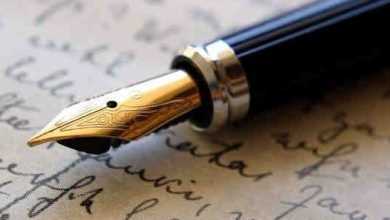On the Magazine “Atr” During the War on the Network: Paul Valery at a Refugee Shelter in Kosti (1-2)

By: Abdullah Ali Ibrahim
It is said that truth is the early victim of war. Imagine the plight of truth in a war like that in Sudan, which is fought more on social media than on the battlefield. This makes it all the more necessary to welcome “Atr” (Ather) Weekly, an online magazine approaching the end of its second year of publication. It is led by Aref Al-Sawi, a distinguished journalist known for his dedication to the profession, along with a group of young journalists known for their rigor and in-depth investigation. “Atr” has distinguished itself from other online newspapers by mobilizing correspondents in Sudanese cities, not only to act as eyewitnesses in reporting on the war but also to give victims a voice to tell their own stories. In doing so, it has achieved something Sudanese newspapers had long failed at, even before the war. These newspapers had completely dispensed with their network of correspondents, relying solely on their editors to write stories, and saw an increase in opinion columns, turning the paper into an elite salon or a cellar for endless political arguments that alienated all other political discourse. “Atr” accomplished what James Hunter, author of Democracy and Solidarity, called for: the need to discover the human being beneath the abstractions of our fraught symbolic politics.
A Sudanese proverb goes, “Who knows Aisha in the spinning market?”—it speaks to the humiliation of being unnoticed. However, “Atr” introduced us to a woman named Safaa, working in the “tea ladies” market in the city of Merowe, one of the towns in the Northern State that hosted displaced people from Khartoum and Madani. The market had been small until the influx of displaced people, and many women from these groups began selling tea on the streets of the town. Journalist Hassan Al-Nasser wrote that these women changed the face and smell of the city: “You could smell the mud formed from them sprinkling water on the ground where they work, along with the fragrant scent of incense from their burners.” Safaa had fled from Khartoum to Madani, the capital of Al-Jazira State. She described her escape, saying, “We left empty-handed,” meaning they had lost everything. “Life in Madani was easy and pleasant,” and Khartoum, which they would inevitably return to, was only a stone’s throw away. But when the Rapid Support Forces occupied Madani, they left again. Safaa considered fleeing to Egypt to seek refuge, but financial constraints made that impossible. She thought about going to Juba, the capital of South Sudan, after friends there assured her she could make a living selling clothes, food, or working in beauty salons. However, she chose to go to Merowe with a family she had met in Madani. She described Merowe as “stable and good” but feared the arrival of the Rapid Support Forces. If they came again, she said, “We’ll throw ourselves into the Nile.”
Sari Naqd, Mohamed Hussein, Wafa Abdelazim, and Hassan Al-Nasser wrote four journalistic stories titled “Between Nature’s Wrath and War’s Malice” about the unprecedented floods of autumn 2024 in government-controlled areas and the displaced people from areas occupied by the Rapid Support Forces. The floods resulted in 29 deaths, 125 injuries, 167,000 people affected by destroyed homes and submerged businesses, and 30,000 people displaced. Three electricity stations in Port Sudan, the temporary administrative capital, were knocked out of service. The floods inundated the tents of displaced people in Kassala (253,000) and Gedaref (755,000) and cut off the Port Sudan-Atbara road, which is a vital commercial artery for the entire country.
The writings of Sari, Wafa, Mohamed, and Al-Nasser were not the typical “Oh, the tragedy!” stories that flood social media about the war. They are what foreigners might describe as keeping their heads above water amid crashing waves, if we wanted to be rhetorically clever. These disasters weren’t caused by the war, but predated it. In the Northern State and the River Nile State, some people had planted crops in the fertile basins designed by nature to drain floodwaters, safely away from inhabited areas. The greater danger, however, came from the blockage of these basins due to unregulated gold mining activities, as gold has become the nation’s top product. The riverbeds are prime spots for gold mining because gold veins appear along their banks. Excavation has left behind heaps of earth, known locally as “karta,” obstructing the natural flow of water, which then diverts into homes and farms, flooding them. But this isn’t the end of the misery. These heaps of earth are laden with mercury and cyanide, chemicals used in the extraction of gold from the surrounding dirt and stone. Floodwaters carry this contamination to people and their livestock. It is deeply frustrating that the government has ignored the public’s prolonged outcry against this environmentally destructive economic activity. People have complained about the death of their livestock, birth defects in pregnant animals, and an increase in miscarriages. Still, the state did nothing.
The story concluded that urban and rural planning failed to account for the natural flood channels when allocating housing plots. The government distributed land in areas threatened by floods with no regard for safety. It did not heed the wise words of a flood-affected individual quoted by the journalists: “Water is water, whether little or much, and floodwaters never forget their path.” However, these natural channels lost their path because of human interference.



